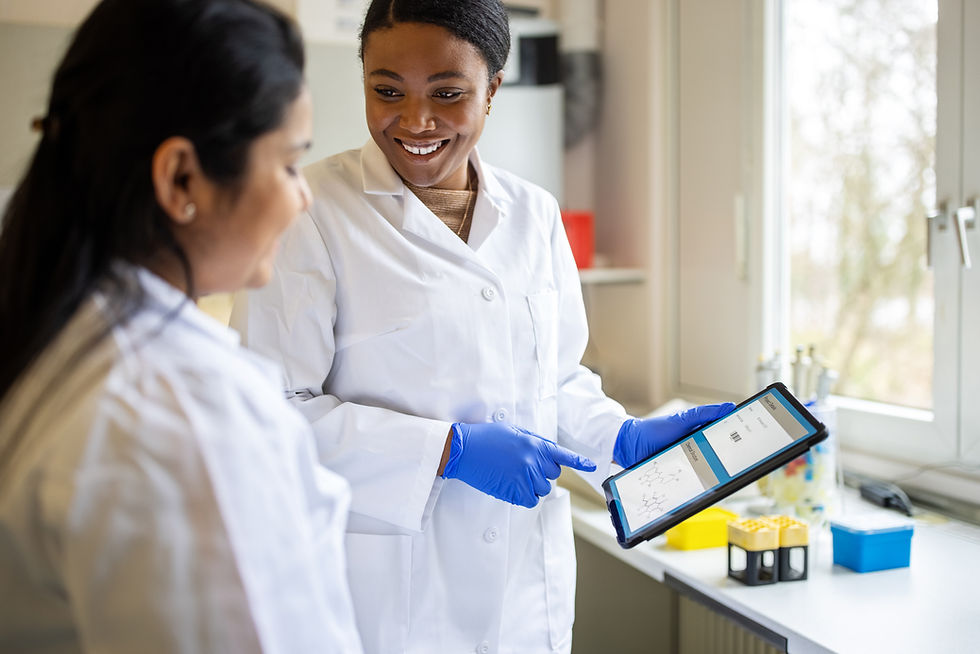Leveraging the Body Volume Index (BVI) for Precision Insights in the Pharmaceutical Industry
- Select Research

- Oct 3, 2023
- 2 min read
Clinical trials serve as vital milestones in the pharmaceutical journey, yet they often come with the hefty price tag of time and resources. However, the Body Volume Index API is a transformative tool that allows easy access and insights into a vast range of body and health risk data from trial participants.
Whether in the midst of a trial or just embarking on the recruitment phase, BVI data offers a seamless means to access crucial insights, streamlining the trial process and enhancing its cost-effectiveness. In this blog, we'll explore how the Body Volume Index API can be a game-changer for pharmaceutical research, providing a data-driven edge that promises to reshape the landscape of clinical trials.

Applications in the Pharmaceutical Industry:
Drug Development and Efficacy Assessment: BVI plays a pivotal role in pharmaceutical research by offering a comprehensive view of how drugs interact with the human body. Researchers can use BVI data to determine how a medication affects body composition and health risk. This insight is crucial for optimising drug dosages, ensuring patient safety and improving treatment efficacy.
Clinical Trials: BVI can enhance the design and execution of clinical trials. By incorporating BVI measurements, researchers can better tailor inclusion criteria and fast-track the recruitment process. BVI also allows researchers to monitor changes in participants’ bodies throughout the trial, leading to more accurate assessments.
Personalised Medicine: Personalised medicine is a rapidly growing field within pharmaceuticals, aiming to provide individualised treatment plans based on a patient's unique characteristics. BVI is a valuable tool in this endeavour, as it allows for a more precise understanding of a patient's body. This information can guide medication selection and dosing to maximise therapeutic benefits while minimising adverse effects.
Obesity and Metabolic Disorders: Pharmaceuticals aimed at treating obesity and metabolic disorders often require a deep understanding of an individual's body composition. BVI can provide researchers with the data needed to develop targeted therapies that address the specific needs of patients struggling with these conditions.
Monitoring Long-Term Effects: BVI's ability to track changes in body composition and measurements over time is invaluable for long-term pharmaceutical research. Researchers can use BVI to monitor the lasting effects of medications, helping to identify potential complications or benefits that may arise months or even years after treatment initiation.

Conclusion
The Body Volume Index (BVI) represents a shift from using manual measurements or the Body Mass Index (BMI), in how the human body's linear measurements, body composition and health risk can be analysed.
In pharmaceutical research, it offers a wealth of opportunities for enhancing drug development, clinical trials, personalised medicine, and the treatment of obesity and metabolic disorders. As technology continues to advance, BVI is poised to play an increasingly central role in shaping the future of pharmaceutical research, leading to safer and more effective medications for people worldwide.








Comments